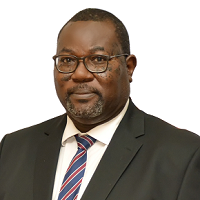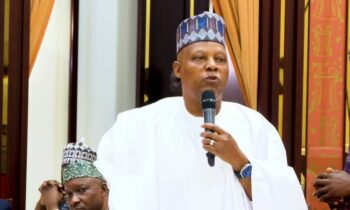Both the Federal and state governments may have found a way round the incessant electricity outages that have caused huge economic losses in the country by exploring alternative ways of making citizens have access to a more reliable power supply.
The Federal Government is set to start collaborating through the Rural Electrification Agency (REA) with the 36 states by looking at the possibility of deploying alternative ways through mini and off-grid solutions.
If the plans eventually go through, electricity distribution companies (DISCOs) may further run into troubles as a huge chunk of their revenue base may be affected
The two parties are not alone in this direction as the World Bank and the UK government are said to have also bought this idea which is seen as the immediate solution to the issue of frequent system collapse in the country.
Analysts said that tariff might be higher than what the electricity distribution companies in the country are charging, the supply would however be reliable enough for people to carry out their economic activities and make the necessary gains.
Some of those making case for these alternative ways are said to be convinced that the move could sustainably provide a solution to unemployment, lack of industrialisation, agricultural challenges, poverty and others.
Consequent to this development, the Rural Electrification Agency (REA) which is in charge of the mini, and off-grid projects organized a stakeholders’ forum meant to accelerate min and off grid solutions across the country. It was at the fora that it was noted that there was a need for states to play critical roles in addressing electricity challenges in the country.
These objectives are planned to be achieved under the Africa Clean Energy – Technical Assistance Facility (ACE-TAF), funded by the UK Government Foreign, Commonwealth and Development Office (FCDO), the plan is expected to foster harmonious working relationship between REA and states to create a pathway for access to data on un-electrified communities, enable proper co-ordination and flow of information among stakeholders, create an enabling environment for private developers on REA programmes and encourage innovation and startups within the renewable energy space in states.
At the forum, the Minister of State for Power, Goddy Jedy Agba stated that recent events have shown the need to focus on deploying more off-grid solutions to complement the efforts of the Federal Government in ensuring that there is a reliable supply of electricity nationwide.
“To have nationwide access to electricity, we have to focus on enhancing the national grid and the off-grid solutions. To grow an economy, stable electricity is a key factor, which cannot be overemphasized. The Federal Government has equipped agencies such as the REA with the tools it needs to contribute its quota to ensuring all Nigerians have access to electricity,” he said.
Lamenting that the country has had four major grid collapses this year alone, Agba said strong mini grids could serve as a backup to assuage possible impacts of impacts in an event of grid collapse.
Task Team Lead, NEP, World Bank, Jon Exel said states stand to benefit from new moves in terms of job creation to improve livelihoods, better productivity, and income generation opportunities.
“This also makes the states a key stakeholder for such projects, and the ownership and collaboration was crucial to achieving universal electrification. We completely support and extend our support for the expected outcomes of the workshop pertaining to increased state ownership,” he said.
The board Chairman of the agency, Abdulazeez Musa Yar’Adua said there was a need to ensure adequate stakeholder coordination with the States, to ensure that the stakeholders are all working together towards the same purpose of increasing energy access
“It is important for the State Government to understand the programmes within REA and how best to work with the REA in providing electricity to the rural communities,” he said.
Team Leader for Economic Development, UK FCDO, Gail Warrender said while Nigeria has more people without access to electricity in the world, states have critical roles to play to change the narrative.
She also called on the Federal Government to ensure that the sector is supported with the right policy, adding that apart from focusing on domestic customers, there was a need for organisations to look in the direction of commercial customers.
He urged for clusters that would develop industrial activities across key sectors especially agro businesses.
Ahmad Salihijo Ahmad, Managing Director of Rural Electrification Agency (REA), said there was the need for proper coordination amongst the key stakeholders are State Governments and the various Local Governments as well as Rural Electrification boards.
According to him, the success of the attempt to increase energy access is linked to the support from the States, which could be done through their respective rural electrification boards and the focal persons nominated by the Executive Governors of the different States.
“The REA deploys capital projects nationwide as part of its mandate to increase energy access to the un-served and underserved in the country. “
However, the sustainability of these projects is a key factor in meeting our objectives as an Agency.
“To address some of the concerns around the sustainability of some of these projects, the Agency introduced the Rural Electricity Users Cooperative Society (REUCS), to enable communities to come together and play key roles in ensuring the sustainability of the projects,” Salihijo said.
He noted that the agency has adopted several business models that allow the REA to partner with private companies to deploy off-grid energy solutions to rural communities.
While the UK government was worried that the outlook of electricity in Nigeria remained a basic challenge, the World Bank noted that collaboration between the states and the federal government in terms of off and mini-grid remained viable leeway for the electricity sector in the country.
olusola Bello




